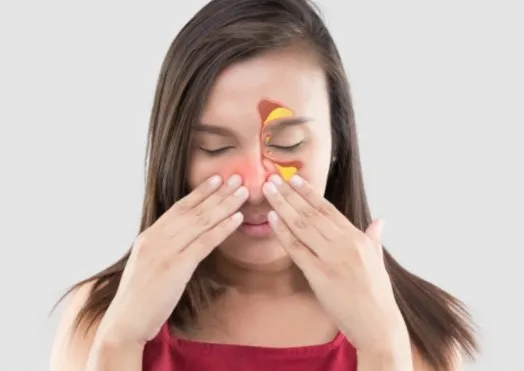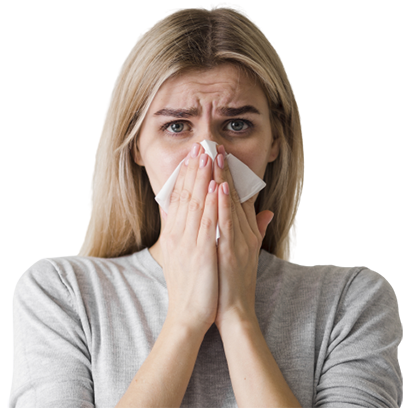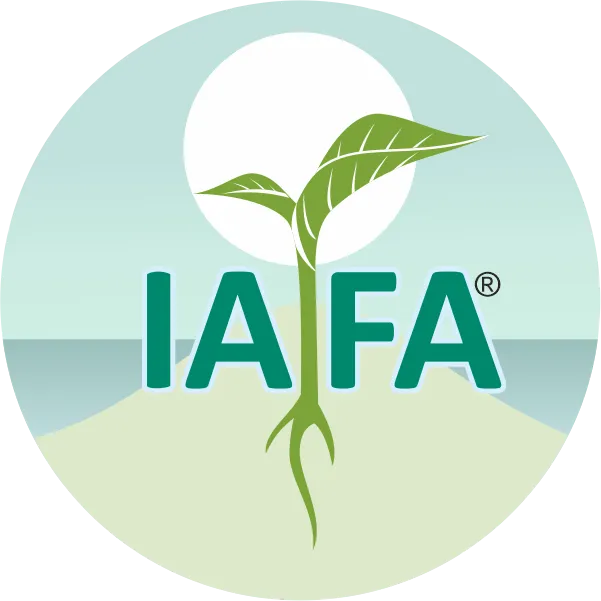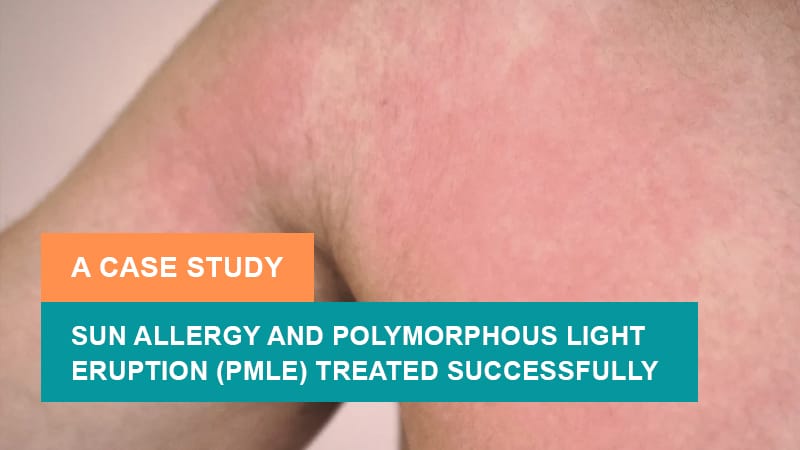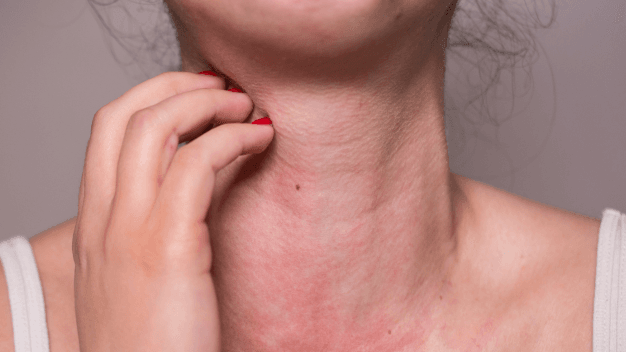On This Page
Introduction
The inflammation or infection in the paranasal sinus is known as Sinusitis. When this condition is caused by a fungal organism then it is known as Fungal sinusitis, Aspergillus sinusitis, Fungus rhinosinusitis, etc. It is a broad term used in all kinds of sinusitis situations where fungus is involved like yeast and mold. One of the most common pathogens that is involved in fungal sinusitis is Aspergillus flavus which represents the allergic reaction to these fungi and shows findings like the ABPA i.e. Allergic bronchopulmonary aspergillosis. The individual with allergic tendencies or immune-compromised individuals primarily suffer from these diseases due to the overgrowth of fungal spores in the sinus.
In Ayurveda based on its symptoms, pathophysiology, etc. it is correlated with various conditions that occur due to the imbalance of Kapha and Vata Dosha. In this article, you will find out the causes, symptoms, diagnosis, and Ayurvedic treatment for fungal sinusitis like Panchakarma Procedures (internal purification of the body), Yoga procedures, Single Herbs, Diet and Lifestyle modification, etc. The treatment helps in balancing the vitiated Kapha and Vata Dosha, which will certainly help to treat Fungal or Aspergillus rhinosinusitis.
What is Fungal Sinusitis?
The allergic reaction or infection caused by fungal organisms in the paranasal sinus is known as fungal sinusitis. The most common pathogen that is involved in fungal sinusitis is Aspergillus flavus and this sinusitis is known as Aspergillus sinusitis. Fungal sinusitis ranges from mild allergic reactions to life-threatening and invasive conditions. When there is an overgrowth of fungi in the sinus, it results in different kinds of sinus complications.
Fungal Sinusitis – As Per Ayurveda
Based on pathophysiology (Samprapti), symptoms (Lakshana), and Dosha involved Fungal sinusitis are correlated with Dushta Pratishaya in which symptoms like nasal blockage, facial pain, thick discharge, etc are similar. It is also correlated with Kaphaja Shiroroga in which excessive mucus production and symptoms like dull headache and heaviness align with Kaphaja Shiro Roga. Subtypes of Nasa Roga (Nasal disorder) like Apinasa and Peenasa due to chronic nasal blockage, mucus accumulation, etc. align with persistent nasal congestion and hypersensitivity in fungal sinusitis. In invasive forms of fungal sinusitis when there are symptoms like inflammation, and tissue destruction, Pitta Dosha is also involved.
Who Gets Affected by Fungal Sinusitis (Aspergillus Sinusitis)?
The individuals having allergic predispositions especially for fungal spores, due to HIV/ AIDS, Diabetes, Chemotherapy weakened immunity, occupational exposure like farmer who are exposed to decay plant material and organic dust, suffering from chronic sinus conditions like nasal polyps or excessive use of various nasal sprays are more prone to be affected by fungal sinusitis.
How Common is Fungal Sinusitis?
The most common sinusitis type that has been reported worldwide, especially in the winter season, is fungal sinusitis.
- The prevalence of fungal rhinosinusitis among chronic rhinosinusitis was as high as 42.6% with most patients being above the age of 41 years with the majority of them being from an agricultural background.
Reference – Shetty, S., Chandrashekar, S., & Aggarwal, N. (2019). A Study on the Prevalence and Clinical Features of Fungal Sinusitis in Chronic Rhinosinusitis. Indian Journal of Otolaryngology and Head & Neck Surgery, 72 (1), 117.
- A recent study revealed that Fungal sinusitis was diagnosed in 94 (93%) of 101 consecutive surgical cases with CRS.
- The prevalence of chronic FRS cases was at 0.11% of the population and Aspergillus flavus was the predominant (97.6%) agent of all types of chronic.
Types of Fungal Sinusitis
Mainly two types of Fungal sinusitis:-
- Invasive Fungal sinusitis
- Non- invasive Fungal sinusitis
1) Types of Invasive Fungal Sinusitis
- Acute Invasive Fungal sinusitis – This type occurs in immunocompromised individuals in which rapid destruction of tissues is seen.
- Chronic Invasive Fungal sinusitis – In this type of tissue invasion occurs but with slow-growing fungal infection.
- Granulomatous Invasive Fungal sinusitis – In this type of fungal sinusitis granuloma formation occurs but this is a rare type of fungal sinusitis.
2) Types of Non-Invasive Fungal Sinusitis
- Allergic fungal sinusitis (AFS) – When the individual has hypersensitivity for the fungal spores then that is known as AFS.
- Mycetoma (Fungal ball) – In Fungal ball sinusitis, without tissue invasion, fungal growth occurs in the sinus cavity.
Causes of Fungal Sinusitis – As Per Ayurveda
- Mala Dushti: When there is improper elimination of waste in the body it leads to fungal proliferation.
- Ama (Toxins): Accumulation of Ama (Toxin)
- Kapha imbalance: When Kapha is imbalanced it leads to excessive mucus production and its stagnation.
- Vata imbalance: Vata imbalance leads to dryness and hypersensitivity in the passage of the nose.
Causes of Fungal Sinusitis – As Per the Modern Perspective
- Chronic sinusitis
- Weak immunity
- Exposure to fungal spores for prolonged time
- Prolong use of corticosteroids and antibiotics
- Structural abnormality in the nasal passage
- Nasal polyps
Symptoms of Fungal Sinusitis – As Per the Ayurveda Perspective
- Kaphaja Symptoms: Heaviness in the head, thick nasal discharge, dull headaches, and sticky discharge are the symptoms that contribute to an imbalance of Kapha.
- Vataja Symptoms: Pricking and sharp pain in the sinus, dryness in the sinus, and nasal irritation are a few symptoms that contribute to the imbalance of Vata.
- Ama (Toxin) related symptoms: Fatigue and foul smell discharge from the nose contribute to the toxin accumulation.
Symptoms of Fungal Sinusitis – As Per the Modern Perspective
- Blockage or nasal congestion
- Discolored thick nasal discharge
- Heaviness in head
- Dull headache
- Swelling around the eyes
- Facial pain
- The feel of pressure especially in the forehead and around the eye
Ayurvedic Reference of Aspergillus Sinusitis
कासारुचिम्रावघनप्रसेकाः कफाद् गुरुः स्रोतसि चापि कण्डूः॥१०६॥
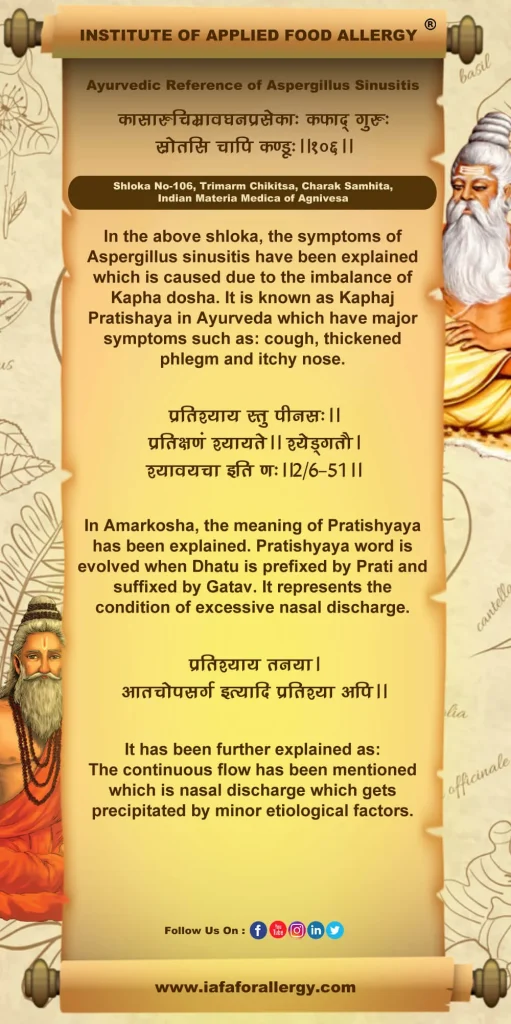

“Fungal sinusitis is a chronic infection that requires prompt attention for faster recovery. Ayurvedic treatment offers a complete cure for Aspergillus sinusitis without side effects. Dr. Gupta’s Institute of Applied Food Allergy® has successfully treated numerous cases using natural remedies.”
– Dr. Sahil Gupta (B.A.M.S., M.H.A.)
Ayurvedic Allergy Specialist
CEO & Founder of IAFA®
At last, Easier Fungal Sinusitis Treatment

Trusted by
More than 90,000 Patients

Convenient
at-Home Treatments

9.2 / 10
Customer Satisfaction Score
Diagnosis of Fungal Sinusitis
As per Ayurveda, the diagnosis of fungal sinusitis will be made according to Prakriti assessment, Vikriti evaluation, pulse diagnosis, lifestyle and dietary assessment, etc. as per the Dashvidha Pariksha (tenfold examination) mentioned in the Ayurvedic classics.
Ayurvedic Treatment for Fungal Sinusitis (Aspergillus Sinusitis)
The Ayurvedic treatment of Fungal Sinusitis (Aspergillus Sinusitis) mainly focuses on clearing the sinus, balancing the Dosha mainly Kapha, Vata and strengthening the immune system by a combination of detoxification processes through Shodhana (purificatory) and Shamana (palliative) using Tikshna (sharp), Ushna (hot) and Kapha, Vata Hara (Kapha, Vata dosha pacifying) medications.
IAFA Ayurveda provides effective purificatory and palliative therapies for the successful treatment of Fungal Sinusitis (Aspergillus Sinusitis). Dr. Gupta’s IAFA is the perfect destination for treating Fungal Sinusitis as well as other types of allergies. The Ayurvedic approach that is used to treat Aspergillus or fungal sinusitis is as follows:-
Detoxification Therapy (Shodhana Therapy) for Fungal Sinusitis:-
1) Nasal therapy / Intra Nasal instillation (Nasya) – Medicated oil or powder is administered through the nostril like Shadbindu Taila, Anu Taila, etc.
Benefits: Using Nasal therapy in fungal sinusitis balances Kapha Dosha, helps in reducing fungal load, and clears the sinuses.
2) Medicated smoke (Dhumpana) – In fungal sinusitis various herbs like Vacha and Haridra are used for giving medicated smoke like Nasal Air.
Benefits: Medicated smoke not only dries up mucous but also gives good results in clearing fungal infections when used properly under medical supervision.
3) Ear Filling Therapy (Karan Purana) – In this procedure, the medicated oil like Neem oil, etc. is filled in the ear of the patient with fungal sinusitis.
Benefits: Sometimes fungal sinusitis is extended and spreads in the ear. In such situations for treating fungal infection Ear filling therapy is used.
4) Emetic therapy (Vamana) – For expelling excessive Kapha from the patient of fungal sinusitis, controlled therapeutic vomiting is done.
Benefits: Emetic therapy helps in the removal of Kapha Dosha from the body, the main culprit behind fungal sinusitis, and thus helps in reducing congestion. After emetic therapy oral medication is given to patients of fungal sinusitis and gives the best result.
5) Purgation therapy (Virechana) – Therapeutic purgation is also done in fungal sinusitis patients with the help of various herbs like Haritaki, Aargvadha, etc.
Benefits: Good immunity is a great need to treat diseases like fungal sinusitis. For that reason, purgative therapy is done which not only detoxifies the body but improves immunity.
Face oil Massage (Mukha Abhyanga) with Karpasa Shastyadi tail, etc, and Kaval (gargling) with Triphala and Tankan Churna are also recommended for Fungal Sinusitis. Steam inhalation is also very beneficial in fungal sinusitis.
Herbs that Can be Used to Treat Fungal Sinusitis
Herbs that can be used to Treat Fungal Sinusitis are Haridra (Curcuma longa / Turmeric), Tulsi (Holy basil), Neem (Azadirachta indica), Guduchi (Tinospora cordifolia), a combination of three herbs Pippali (Piper longum), Maricha (Piper nigrum), and Shunthi (Zingiber officinalis), Vidanga (Embelia ribes), etc. These herbs possess anti-fungal, anti-inflammatory, demulcent, expectorant, immunomodulatory, anti-microbial, detoxifying, Kapha, and Vata Pacifying properties due to which its clear sinus, reduce inflammation, clear toxins, reduce and inhibit fungal growth, enhance immunity, clear nasal congestion, etc. which makes them ideal to use in fungal sinusitis.
Diet and Lifestyle Guidance (Pathya-Apathya) of Fungal Sinusitis (Aspergillus Sinusitis)
According to Ayurveda, if your diet is correct then medicine is of no use because a good gut is considered as the basis of a healthy individual. So, by giving attention to our daily diet, we not only get relief from the disease from which we suffer but also avoid the upcoming diseases. Below we mention some dietary and lifestyle guidelines that one can follow for Fungal sinusitis:
What to Do (Pathya)?
- Steam inhalation is recommended with various essential oils like Eucalyptus.
- Include herbs in your diet that help to reduce Kapha like Ginger, Turmeric, Black Pepper, etc.
- Herbal tea must be included in the diet that has Clove, Tulsi, and Ginger as ingredients.
- Light, easily digestible and warm food like Vegetable soups, Moong Dal, or various lentil soups should be used.
What to Avoid (Apathya)?
- Avoid Kapha aggravating food like the cold (Sheeta), heavy (Guru), and Oily (Sanigdha) food.
- Keep away from dairy products as they can increase mucus production.
- Refined carbohydrates and refined sugar should be avoided as they promote fungal growth.
- Intake of cold beverages and refrigerated food
- Use of cold water for internal and external purposes
- Avoid damp environments and cold weather.
- Day sleep (Diva Swapna)
- Emotions like anger or sorrow
Yoga Cleansing Techniques (Shatkarma Shodhana Therapy) for Fungal sinusitis
- Sutra Neti – In Fungal sinusitis thread cleansing of the nasal passage gives great results by removing the obstruction in the sinuses.
- Jala Neti – With lukewarm saline water nasal cleansing is done in Jala Neti which reduces fungal infection and clears nasal passage.
- Kapalbhati – This rapid exhalation technique helps in balancing Kapha Dosha and acts as a lung detoxifier.
Yoga Asana for Fungal sinusitis
Various Yoga Asanas like Cobra pose (Bhujangasana), Plow pose (Hala Asana), Camel pose (Ustra Asana), Alternate nostril breathing (Anulom-Vilom), etc. can be used in fungal sinusitis or Aspergillus sinusitis. These Yogic Asanas improve blood circulation to the sinuses by increasing oxygen flow to the sinuses which helps in relieving congestion, helps in balancing Kapha Dosha, improves respiratory function, and improves immunity thus helping in improving the symptoms of Fungal sinusitis.

Gem Therapy for Fungal Sinusitis
Few stones are recommended to wear in fungal sinusitis as per Vedic Astrology. These stones can be worn after proper consultation with an astrologer as per your birth date, Zodiac sign, etc. to get only benefits. As per astrology Yellow Sapphire (Pukhraj), Emerald (Panna), Ruby (Manikya), Blue Sapphire (Neelam), and Hessonite (Gomed) can be worn as per your natal chart if you are suffering from fungal sinusitis. These stones help in balancing Vata and Kapha, improve energy, support detoxification, boost vitality, and help in improving sinus drainage. Blue sapphire is very helpful in reducing chronic fungal infection while hessonite is useful in recurrent fungal issues.
Frequently Asked Questions
Question: How Can Fungal Sinusitis Be Prevented?
Answer: Practicing nasal hygiene regularly, avoiding moldy areas strengthening immunity with herbs, and doing various lifestyle modifications help in preventing fungal sinusitis.
Question: Can Ayurveda Cure Fungal Sinusitis?
Answer: Ayurveda addresses the root cause of fungal sinusitis and helps in boosting immunity. So, Ayurveda is very effective in treating fungal sinusitis in mild to moderate cases. However, in severe cases, integration with modern medicine may be required.
Question: What Food Should Be Avoided in Fungal Sinusitis?
Answer: The food that aggravates Kapha like dairy food, fried food, cold beverages, etc should be avoided.
Question: How Does Kapha’s Aggravation Contribute to Fungal Sinusitis?
Answer: Kapha aggravation leads to a moist environment in the sinus which promotes fungal growth, excessive mucus secretion, and stagnation.
Question: Which Ayurvedic Herbs are Useful in Fungal Sinusitis?
Answer: The use of herbs in fungal sinusitis varies from person to person as per diagnosis and symptoms but a few various that are frequently used are Turmeric, Holy basil, Giloye, Pippali, etc.
Question: How Does Yoga Therapy Along with Ayurvedic Treatment Complement Fungal Sinusitis?
Answer: Doing various above-mentioned Yoga therapy helps in improving respiratory health, enhances sinus drainage, and clears nasal passage.
References
- Fungal disease of the nose and paranasal sinuses Thompson, George R. et al. Journal of Allergy and Clinical Immunology, Volume 129, Issue 2, 321 – 326
- K P, Karthik & Dileep, Aparna & Shrikrishna, Rajagopala & Mahapatra, Arun & Dharmarajan, Prasanth. (2021). Ayurveda approach to mucormycosis and other fungal infections: A comprehensive review. Journal of Indian System of Medicine. 9. 216- 225.
- Ahmad, Azeem & Gundeti, Manohar & Dave, Parth & Jameela, Sophia & Khanduri, Shruti & Rao, Bcs. (2021). Efficacy and safety of Ayurveda interventions for Sinusitis: A systematic review and meta-analysis. 10. 1101/ 2021. 03. 11. 21253190.
- Chakrabarti A, Denning DW, Ferguson BJ, Ponikau J, Buzina W, Kita H, Marple B, Panda N, Vlaminck S, Kauffmann-Lacroix C, Das A, Singh P, Taj-Aldeen SJ, Kantarcioglu AS, Handa KK, Gupta A, Thungabathra M, Shivaprakash MR, Bal A, Fothergill A, Radotra BD. Fungal rhinosinusitis: a categorization and definitional schema addressing current controversies. Laryngoscope. 2009 Sep; 119 (9): 1809- 18. doi: 10. 1002/ lary. 20520. PMID: 19544383; PMCID: PMC 2741302.
- Taghian E, Abtahi SH, Mohammadi A, Hashemi SM, Ahmadikia K, Dolatabadi S, Mohammadi R. A study on the fungal rhinosinusitis: Causative agents, symptoms, and predisposing factors. J Res Med Sci. 2023 Mar 16; 28: 12. Doi: 10. 4103/ jrms. Jrms 270 22. PMID: 37064793; PMCID: PMC 10098138.
Seek Expert Advice
Dr. Gupta’s IAFA is a pioneering center in the Ayurvedic management of various diseases including Fungal sinusitis. IAFA Ayurveda ensures good results and relief to all suffering from the distressing effects of Fungal sinusitis.
For Personalized Treatment of Fungal Sinusitis (Aspergillus Sinusitis), Book Your Consultation Now !!!
Was this Page Helpful?
So IAFA Root-Cause Treatment of Fungal Sinusitis (Aspergillus Sinusitis) is Just 3 Steps Away!

01. Connect With Us
Share your history of illness or Book your appointment

02. Consult With Us
Dr. Gupta a certified Ayurvedic Allergist Consultant

03. Root Cause Treatment
Get an accurate diagnosis, medicines, diet & lifestyle change
Real Case Studies – Successfully Treated Patients
Real Case Studies of Successfully Treated Patients from All Around the World by IAFA Ayurveda®

9 Year Old Female Patient Recovered from Chronic Allergic Bronchitis – A Case Study
This case study presents a 9-year-old female patient who has successfully recovered…

12-Year-Old Child Recovered from Sun Allergy and Polymorphous Light Eruption (PMLE) – A Case Study
This is a case study of a 12-year-old child who has successfully…

40-Year-Old Female Patient Recovered from Dyshidrotic Eczema and Onychomycosis – A Case Study
This case study highlights the successful recovery of a 40-year-old female patient…

40-Year-Old Female Patient Recovered from Urticaria and Angioedema – A Case Study
This case study focuses on a 40-year-old female patient who has successfully…
Read More Articles

Mast Cell Diseases
Discover Ayurvedic treatment for Mast Cell Diseases, including types, causes, symptoms, and…

High Immunoglobulin-E (IgE) Levels
Discover Ayurvedic treatment for high Immunoglobulin-E (IgE) levels. Learn about the causes,…

Histamine Intolerance
Discover Ayurvedic treatment for histamine intolerance, its causes, symptoms, and natural treatment.…

